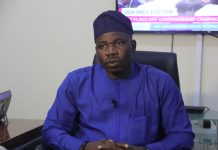The Chief Executive Officer of Nigeria’s Ministry of Finance Incorporated (MOFI), Dr. Taikang Armstrong, has called for immediate reforms in the corporate governance of state-owned enterprises (SOEs), emphasizing that ineffective management is hindering the country’s economic progress. His remarks were made during the 2024 Annual Corporate Governance Conference, where he stressed the need for accountability and strategic investments to revitalize these essential entities.
Dr. Armstrong highlighted that Nigeria’s vast wealth is being squandered rather than directed toward long-term growth. He pointed to several underperforming state-owned enterprises, including the Nigerian National Petroleum Corporation (NNPC), Bank of Agriculture, and the Federal Mortgage Bank, as key examples of mismanagement that impede national development. “These enterprises were created to drive key sectors like energy, housing, and agriculture; unfortunately, their poor performance, driven by weak governance, has stunted Nigeria’s development,” he stated.
The CEO specifically criticized the energy sector, particularly the NNPC, for its failure to reinvest oil revenues into appreciating assets. “For every barrel of oil we extract and spend, if we do not invest it in productive assets, we are depreciating our common wealth,” Dr. Armstrong remarked. He lamented that revenues from the oil sector have not been adequately channeled into long-term projects, which has left the nation poorer despite its oil wealth.
Dr. Armstrong emphasized the need for a cultural shift in resource management, citing Singapore’s legislative approach that prioritizes investment over consumption. “In Singapore, there are laws that prevent borrowing for consumption. Unfortunately, Nigeria has not adopted this mindset. Our oil wealth is being spent on expenditures that don’t generate returns,” he explained.
He stressed the importance of legislative reforms to reverse these negative trends. “We have a collective responsibility to advocate for legislative measures that ensure a portion of revenue from assets, such as oil, is reinvested into long-term projects,” he urged, highlighting the lack of accountability in current practices.
Dr. Armstrong also called for a more rigorous evaluation of Nigeria’s budget, specifically distinguishing between capital and investment expenditures. “A line item labeled ‘capital expenditure’ does not guarantee long-term returns. Capital expenditure should mean investment—something that appreciates in value. Otherwise, we’re just depreciating our common wealth,” he added.
Emphasizing the critical need for corporate governance reforms, he stated, “Without significant changes in governance, these enterprises will continue to hinder our economic growth.” He advocated for improved accountability and transparency, warning that without timely action, Nigeria’s developmental aspirations will remain unattainable.
Drawing comparisons to successful governance models in other countries, Dr. Armstrong suggested that Nigeria could benefit from adopting practices from nations like China, where state-owned enterprises effectively drive industrialization and economic progress. “We need a model that works for Nigeria—one where the government takes the lead in key industries while maintaining strict oversight and governance,” he asserted.
He also stressed the importance of monitoring state-run enterprises’ debt management, pointing out the risks associated with unchecked borrowing. “Many of these enterprises have taken on debt without generating sufficient revenue to repay it. This cannot continue,” he warned.
Dr. Armstrong concluded with a strong message about the need for reforming Nigeria’s state-owned enterprises, stating, “The success of these firms is essential to Nigeria’s economic future. Poor governance is preventing us from realizing our potential, but with the right reforms, we can change the narrative.” He emphasized that urgent action is necessary to secure the nation’s prosperity.










